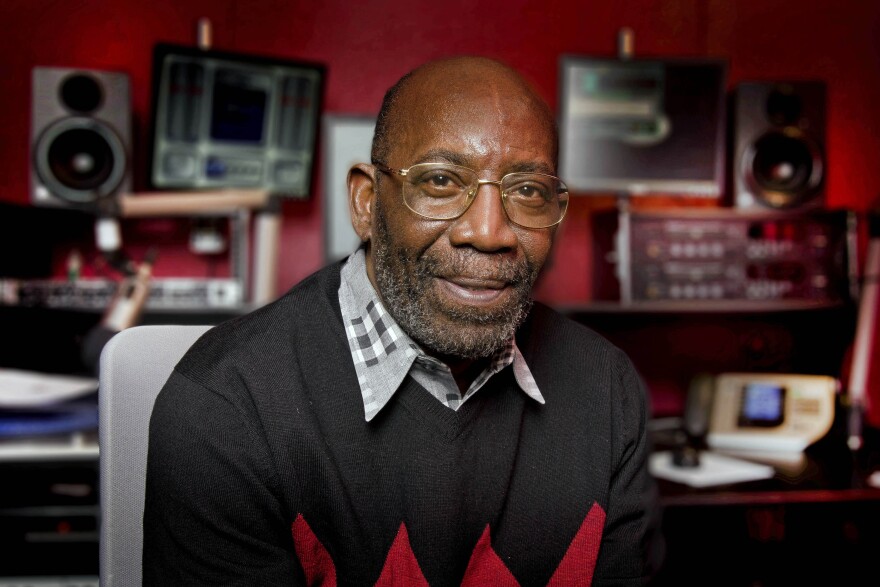For 50 years, the week of September 6, 1970, “In Black America” has featured weekly interviews with some of the most influential African American voices of our time discussing education, economics, social issues, sports, families, culture, literature and politics.
“In Black America” Host John L. Hanson Jr. has graced Central Texas airwaves since his college days at Huston-Tillotson University where he hosted a popular nightly program of jazz and soul music for a small, low wattage station in Lockhart.
He arrived at KUT in 1974, and his first assignment was to produce the nightly music show “Soul on FM,” which earned him recognition as “Best DJ in Texas” by “Texas Monthly” magazine in 1976.
He shifted gears in 1980, taking over as host and producer of the nationally syndicated radio series “In Black America,” heard weekly on 12 radio stations across the country. Seeking national and international leaders and rising stars in all areas of life affecting Black Americans, Hanson has interviewed hundreds of people, including Lena Horne, Andrew Young, Joseph Lowery, Coretta Scott King, Bill Cosby, Arthur Ashe, Maulana Karenga, Les Payne, Tony Brown and Joe Sample.
Follow John on Facebook.
How did you come to host “In Black America”?
After “Soul on FM” was cancelled (in 1980), KUT management came to me and asked if I wanted to produce and host “In Black America.” They stated that I would have a bigger impact with a syndicated program than a local one. I said if it’s “In Black America,” it needs to reflect Black America outside of Austin. I was given a travel budget and the rest is history.
What has been your biggest interview “get”?
All the interview to me are significant. Big is a relevant term. Some notable guests have been Maya Angelou. She stated that she agreed to the request because her secretary was a fan of the program. John Lewis. I always wanted to know what was it like to march with Dr. King at such a young age; and of course Aretha Franklin. I have to thank my grandmother for that interview – she was a member of her father’s church.
What interview are you still hoping to get?
Of course it’s President Obama!
Do you think the show has evolved over the years as you’ve grown as a person?
Over the years, the format has stayed the same. It’s not about me – it’s the guests. “Straight-forward conversations.” The music artist takes a little more work – so do the tributes – other than those programs – it has remained the same.
Has there been an interview that changed your mind or broadened your perspective on something?
I guess the deepest conversation I have had was with Rev. Samuel D. Proctor. He talked about how steady his father was and how his example made him the man he became. And Congressman John Conyers. He challenged my understanding of what goes on in Congress.
Have you ever interviewed a subject more than once?
Always. Times change – so does how issues are addressed. Case in-point: HIV/AIDS in the African America community. Health care or the lack thereof.
Why do you believe “In Black America” is suited for public radio audiences?
Any conversation on the African America experience in important. The current state of the pandemic has laid bare the health inequalities in this country. I think the public radio audience are more in-tune with current events and are more open-minded.
Who should listen to “In Black America” and why?
Everyone should listen to ‘In Black America’ because it’s one of only a few programs that gives you a raw look inside one of this nation’s most productive groups of citizens despite all the atrocities that have been heaped upon them!
What are some of your goals for “In Black America” for the future?
My goal for the future is to keep producing relevant programming that gives the listener a better understand of what it’s like to be Black in America!
What are your thoughts on the show lasting 50 years (40 years under your guidance)? Are you surprised?
I’m not surprised, not really. It has done what the original intentions were: Provide a voice for the voiceless in our society. UT and KUT have been committed to that endeavor. I’m blessed that they selected me to carry on this important undertaking.




